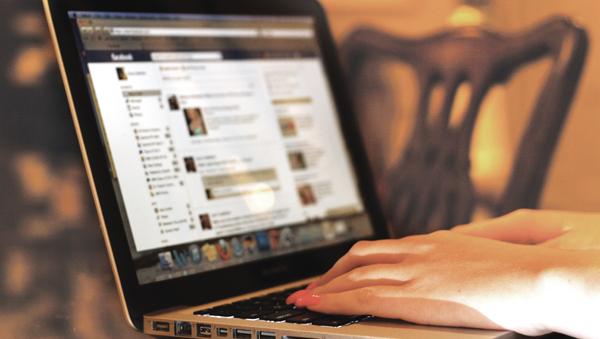In today’s social media world, users are constantly inundated with text, pictures and videos from family and friends. We can reach one another at a swipe of a touch screen, stay in constant communication throughout the day via text, and build entire social networks with people we’ve never met.
The ease with which we can stay in touch is remarkable – but is staying in touch what we’re actually doing?
Some researchers postulate that as our web of contacts grows wider, our real-life relationships lose depth and can make us lonelier, negatively affecting both mental and physical health.
In an article in The Atlantic, John Cacioppo, the director of the Center for Cognitive and Social Neuroscience at the University of Chicago, said interacting with people in the flesh is vital for mental health.
“The greater the proportion of face-to-face interactions, the less lonely you are,” he said. “The greater the proportion of online interactions, the lonelier you are.”
Bryan Poole, a UA graduate student in psychology, said he became a Facebook user years ago, when the site only allowed college students to have accounts.
“Even after it became a mainstream network, I used it constantly to keep up with old friends, maintain current friendships, and keep track of new acquaintances,” Poole said.
To some degree, he said he thinks this is why studies are beginning to show this correlation between social media use and loneliness.
“Perhaps more time spent online means having less time to spend with others in your immediate social environment,” Poole said.
Moreover, he said it seems that people think online interactions provide the same quality of relationships as do face-to-face interactions.
“Perhaps that kind of thinking is preventing people from moving away from the keyboard and stepping into a coffee shop with nearby friends, who can alleviate loneliness better than the online masses,” Poole said.
(See also “Social media alters student, professor relationship”)
Martha Combs, a UA graduate student in psychology, said loneliness relates to poorer health outcomes.
“Lack of social support is often a primary risk factor for many different mental illnesses and, conversely, having a good base of social support can be protective against mental illness and health issues,” Combs said. “As humans, most of us desire social interaction and we often learn about ourselves and the world via the feedback we receive from others.”
Feedback is sometimes negative and people experience embarrassment and/or rejection, she said.
“Sites like Facebook have made social interaction seem easy – it can be done from the security of home, where the risk of embarrassment and rejection is lessened,” Combs said. “So, rather than put themselves out there socially, many people, especially those with social anxiety, turn to online social networking sites to fulfill their need for social interaction.”
However, Combs said social interaction via the Internet is just not the same, as it lacks those cues such as “body language and voice intonation that we have in in-vivo interactions.”
“Therefore, although social networking online may provide some interaction, in a way that feels safe, it does not completely fill that need,” Combs said.
Cacioppo told The Atlantic that social media or online relationships aren’t inherently unhealthy – rather, if utilized in a certain way, they can directly counteract loneliness.
“If you use Facebook to increase face-to-face contact, it increases social capital,” he said. “Facebook can be terrific, if we use it properly. It’s like a car. You can drive it to pick up your friends. Or you can drive alone.”
Janis Edwards, a UA associate professor in communication studies, said her personal experience with Facebook has not been lonely, as she uses it as a supplemental rather than primary means of communicating.
“It’s anything but lonely,” Edwards said. “And I expect when I retire and return to my hometown, I will be more familiar to those who haven’t seen me in a long time, so re-integrating will be relatively easy.”
The range of affects, positive and negative, on Facebook may have to do with user age.
“I resisted Facebook for a long time, but now it keeps me in touch with high school friends, colleagues around the country and friends from hometown, where I haven’t lived for 25 years,” Edwards said.
Personally, Poole said he uses Facebook less frequently than he used to simply because he said he doesn’t have time for it.
“Taking part in many different activities on campus such as teaching classes, doing research, taking leadership roles as well as off campus such as preparing for a June wedding, doesn’t leave much time to ‘like’ a post or write on someone’s wall,” Poole said. “It leaves less time to maintain what I think are more shallow interactions online, and, relative to all of the other things I’m doing right now, using Facebook just doesn’t seem as appealing or socially satisfying.”
Combs said Facebook offers an illusion of intimacy that is not as genuine as it seems.
“People want intimacy with others, but sometimes feel afraid to put themselves out there in real life,” Combs said. “Facebook offers the illusion of intimacy with others and those who use it for that reason leave unsatisfied.”
Also in today’s Crimson White:
MDB’s Gym Jammers help create atmosphere
Life of a pageant queen full of responsibilities
Brookwood Drumline adds college student members







